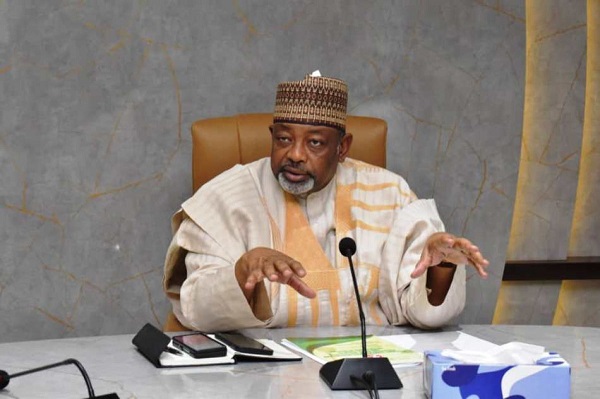
Minister of Agriculture and Food Security, Abubakar Kyari, has said Nigeria must transition from traditional to modern farming systems to realise its full agricultural potential and secure stability.
Kyari spoke in Kaduna at the 47th meeting of National Council on Agriculture and Food Security yesterday, with the theme: “Food Sovereignty and Food Security: An Era of Renewed Hope”.
He said the government’s agricultural transformation drive is rooted in Nigeria Vision 2050, National Development Plan (2021–2025), National Agricultural Technology and Innovation Policy, and Ministerial Roadmap and Priority Actions, adding each initiative supports the goal of economic diversification and shared prosperity.
Kyari noted that targeted interventions by the ministry have started to yield results, citing the decline in food prices in several commodities as evidence that policies are beginning to take effect.
Highlighting key achievements, Kyari said the government, in collaboration with African Development Bank and states, has strengthened National Agricultural Growth Scheme-Agro-Pocket (NAGS-AP), flagship input delivery and productivity expansion programme.
Through this scheme, wheat cultivation has expanded from 15 states in 2023/2024 dry season to wider coverage in 2024/2025 season.
He announced a breakthrough with introduction of rainfed wheat cultivation in Plateau, Taraba, and Cross River, saying it is a “game-changer” for all-year farming and self-sufficiency.
Kyari noted that operations at National Strategic Grain Reserve Silos in Zamfara, Katsina, Nasarawa, Adamawa, Niger, Osun, Edo, and Kwara are enhanced to improve national food distribution and price stability.
“The Renewed Hope National Agricultural Mechanisation Programme, launched in partnership with Heifer Nigeria, will provide farmers, youth, and women with affordable access to tractors, mechanisation hubs, and technical training.
“Mechanisation will be a national service that modernises production, raises yields, and creates sustainable rural jobs,” he said.
He added that the National Agricultural Development Fund has been fully operationalised to expand access to finance for value chains and agribusiness ventures.
Kyari said the ministry is collaborating with states to provide feeder roads, solar-powered boreholes, mini-earth dams, and water treatment plants to enhance productivity and improve livelihoods.
Minister of State for Agriculture and Food Security, Sen. Dr. Aliyu Abdullahi, stressed the need for climate-smart agriculture to increase productivity while achieving adaptation and mitigation goals in crops, livestock, and fisheries.
Abdullahi listed key policy actions being implemented, including the Renewed Hope Agricultural Mechanization Programme, the Dry Season Initiative covering 500,000 hectares, and the “Every Home a Garden” Initiative championed by the First Lady, Senator Oluremi Tinubu.
He also highlighted the Nigerian Farmers’ Soil Health Scheme (NFSHS) and the Renewed Hope Cooperative Reform and Revamp Programme, which are designed to improve soil management, boost productivity, and empower local cooperatives.
“Our country has the capacity to transform its food production systems and contribute more to regional food security,” Abdullahi said. “Our goal is to reduce import dependence, strengthen market confidence, and position Nigeria as a leading food supplier in West Africa.”
Earlier, the Permanent Secretary of the Ministry, Dr. Marcus O. Ogunbiyi, described the Council as Nigeria’s foremost policy forum for agricultural coordination and decision-making.
He noted that the meeting provides an opportunity to align federal and state agricultural policies, harmonise strategies, and foster collaboration among all stakeholders.
“True national strength begins with the ability to feed ourselves,” Ogunbiyi said. “This Council reminds us that food sovereignty goes beyond availability, it is about control, sustainability, and empowerment.”
He urged delegates to translate deliberations into practical policy actions that will strengthen food systems and ensure that “every Nigerian household is nourished.”


